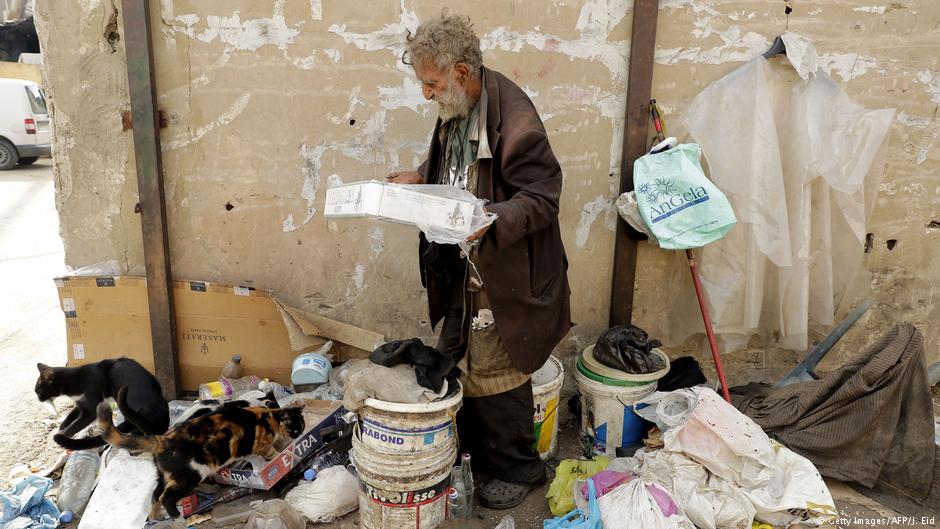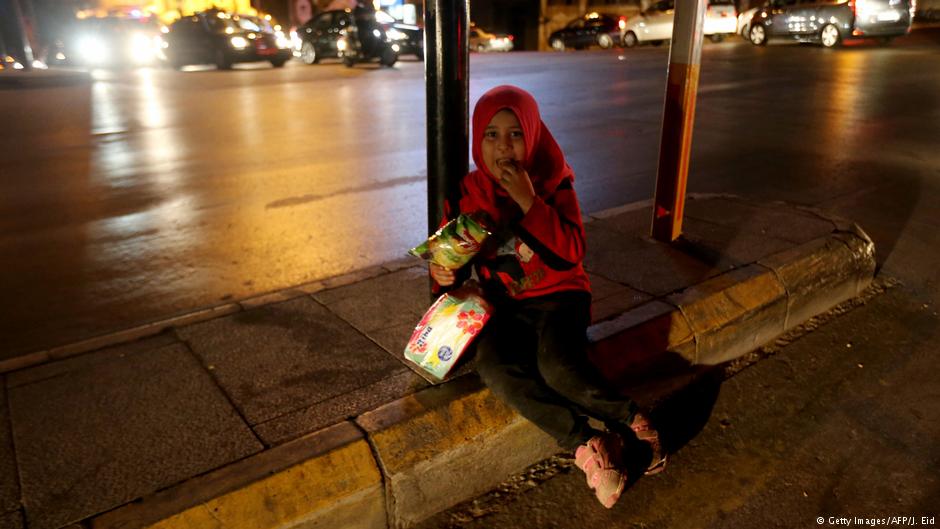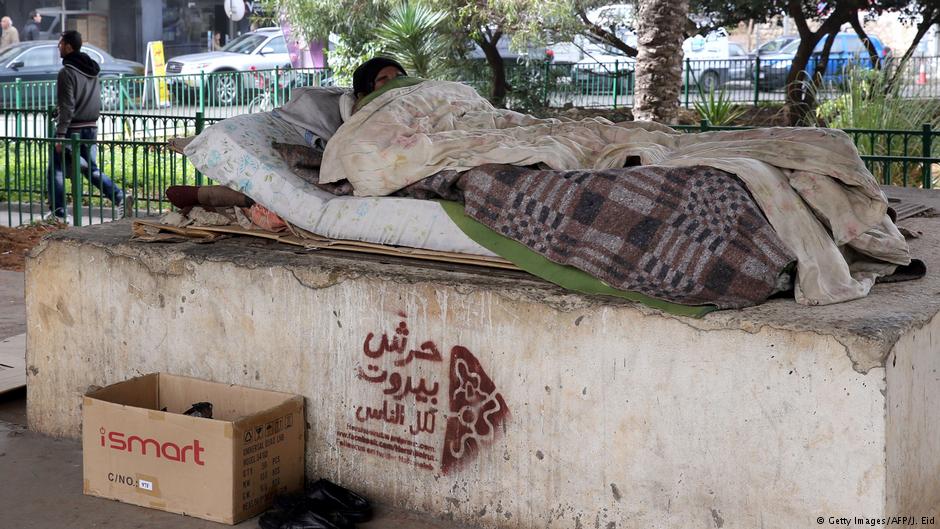There is no state in Lebanon

I did not enjoy watching the movie "Capernaum" by Lebanese director Nadine Labaki. I recommend it, nonetheless. It won this yearʹs Jury Prize at the Cannes Film Festival and has been showing at cinemas in Lebanon since the end of September.
The film tells the story of 12-year-old Zain, who grows up in a Beirut slum. He lives in a small run-down apartment with his struggling, dispirited parents and numerous siblings. Every day is a fight for survival. The question of Zain going to school does not arise; he must work for a grocer, who pays him in kind.
When his sister is forced into an arranged marriage, Zain runs away from home and starts a life of his own. He makes friends with a migrant worker from Ethiopia, who takes him into her poor home. Labaki holds up a mirror to Lebanese society. And what we see is an ugly, cruel, bleak world.
Solidarity is rare. The state only makes its presence felt when people are deported, put on trial or thrown into prison. I found the movie hard to watch because many scenes in it were all too familiar from daily life.
Slums and beggars – children, women with babies, old folks at crossroads – are common in Beirut and other Lebanese cities at any time. People sell flowers, paper tissues, chewing gum or just sit around listlessly. "Capharnaum" challenges us, the viewers, to consider our attitude towards the poor people around us.

Back on the street, outside the cinema, I could not help wondering: should I give this child beggar money? If I do, will I not support the behaviour of irresponsible parents or the "childrenʹs mafia" that lurks in the background? Might it not be better to hand out food? Bananas and water? What should I do?
Daily struggle for survival
Some scenes in the film and situations on the street highlight just the visible side of poverty in Beirut – the side that no one can ignore. But there are many more facets. In the socially diverse district of West Beirut, where I live, I am surrounded by people who struggle for survival daily, without begging or talking about their problems.
Um Bashir is an example. She is a 40-year-old widow. Every day, she and her unemployed son sit in a doorway selling newspapers. Every coin she earns is vital. Then there is 13-year old Hammudi, who works from morning till night for a car mechanic instead of going to school. His parents get 20,000 Lebanese pounds (LBP) – the equivalent of about € 12 – for his weekʹs work.
And there are the young men who deliver crates of water to my door every few days or pack my shopping at the supermarket checkout. They all depend on the tips I give. But I am under no actual obligation to give tips. No one would call me to account or be outraged if I failed to do so.
But there is an unwritten law that requires me to give something. The "haves" give to the "have-nots" or to those with very little. A "have" should always have a few dark-green thousand-pound notes at the ready. A thousand Lebanese pounds is worth € 0.57.

The poor and the discriminated
The UNDP estimates that roughly a third of Lebanese are poor and live on less than four U.S. dollars per day and person. Around 200,000 people have to get by on less than two dollars a day and are thus extremely poor according to the World Bank definition. There are marked socio-economic differences from one region to another.
The situation is particularly difficult in the north and south of the country. Those who dropped out of school and have no professional skills are particularly affected by poverty, regardless of their religious affiliation. However, groups that are disadvantaged by Lebanese law are also disproportionately poor.
Palestinians who have lived in Lebanon for decades are denied equal access to state education. They are banned from entering certain professions and from owning property. They are also granted only limited access to the welfare system. Anyone born into a Palestinian family in Lebanon has a hard start in life. Syrian refugees stranded in the country with no work or residence permit similarly live from hand to mouth. What is more, many Lebanese are hostile towards them because, as cheap labour, they compete for job opportunities with local people.No safety net
Even those who have a job and a regular income that covers the daily expenses, including the childrenʹs school fees, are not safe. Because of the poorly developed welfare system, a serious illness of someone in the family can cause a sharp descent into financial ruin.
Not even the middle class can take good health care for granted in Lebanon. Newspapers regularly carry horrifying reports of people in need of emergency treatment being turned away at hospitals because their family cannot pay up front. The revelations always prompt an outcry, but the fuss quickly subsides.
Poverty in Lebanon is more visible, more pervasive than in Germany or elsewhere in western Europe. It is also more menacing, desperate, merciless. It can strike when least expected. It is accepted as one of the countryʹs many decades-old unsolvable problems.
The weak Lebanese state is not held responsible. "Ma fi dawleh" (There is no state) is an exclamation commonly heard in Lebanon. Just as the state is deemed incapable of solving the waste crisis or getting to grips with power and water shortages, it is not expected to act in support of vulnerable people.
On the contrary, the state is seen as a champion of the rich. Many politicians are also well-to-do business people. Responsibility for social problems is left to charitable organisations, religious organisations and private individuals, who get involved as volunteers. Each religious community looks after its own.
I wonder if it is because poverty is so ubiquitous in Lebanon that people seem to want to distance themselves from others and send out signals that they are not poor. Is that why prestige is so important, why exaggerated importance is attached to expensive clothes and cars, why people boast about their children going to a prestigious private school or studying abroad?
Education is the surest road to social advancement. Parents work their fingers to the bone, taking on multiple jobs so they can afford a good education for their children. For the young generation, the next step is often to leave the country. Many are convinced they can only build a secure future abroad.
Mona Naggar
